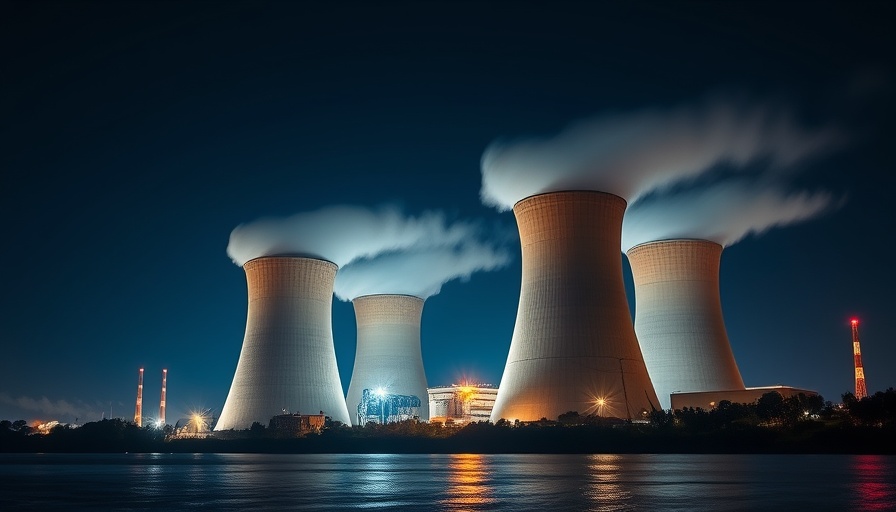
The Unfolding Debate on Nuclear Oversight in the U.S.
In recent months, a notable controversy has erupted around the oversight of nuclear safety in the United States. Central to this discourse is the contentious stance held by the Trump administration towards the Nuclear Regulatory Commission (NRC), the body responsible for regulating nuclear energy facilities across the nation. Critics are voicing increasing concern that these actions could compromise both public safety and environmental standards.
Historical Background: The Role of the NRC
The NRC was established after the Three Mile Island incident in 1979, which highlighted the dire need for stringent oversight of nuclear energy. With the country heavily reliant on nuclear power for electricity—providing about 20% of the total energy needs—safeguarding this sector became paramount. The NRC took on a critical responsibility, ensuring that facilities operate safely and that any potential hazards are effectively managed.
Trump’s Regulatory Changes: A Shift in Focus
Under the Trump administration, there has been a marked shift in regulatory philosophy, aiming to reduce government intervention in various industries, including nuclear energy. The administration’s push for deregulation has led to fears that safety measures may be compromised. Critics argue that this approach places nuclear energy production over public safety, potentially jeopardizing the well-being of nearby communities.
Current Concerns: Public Sentiment and Environmental Impact
Public sentiment has become increasingly polarized regarding nuclear energy. Many who live near nuclear facilities express anxiety over the possibility of accidents, which could have devastating consequences on health and the environment. Recent studies emphasize that even minor regulatory loosening can result in significant safety lapses, prompting calls for urgent reevaluation of the current policies.
The Importance of Regulatory Support for Safe Operations
Supporters of stringent regulations argue that the NRC’s independence is vital to ensuring unbiased oversight. This includes both routine inspections and crisis responses. They emphasize that any erosion of regulatory power poses risks not just locally, as nuclear incidents can have far-reaching effects, but also to the broader environment, altering ecosystems and affecting safety protocols nationwide.
Experts Weigh In: The Future of Nuclear Regulation
Industry experts argue that a balanced approach is essential for the future of nuclear energy. While innovation and efficiency in energy production are necessary, they should not come at the expense of safety. Ensuring robust regulatory practices can foster advancements in technology while maintaining a strong safety net for the public.
Navigating the Future: What’s at Stake?
The ongoing discussions surrounding nuclear oversight are crucial as they delve into broader themes of governance, economic growth, and community safety. The decisions made today will shape the landscape of nuclear energy for decades to come. With many communities closely monitoring these developments, it is essential we prioritize stringent regulatory measures that protect not just current populations but future generations as well.
Take Action: Stay Informed and Engaged on Nuclear Issues
With significant implications for both local communities and the environment, it is vital for citizens to remain informed about nuclear regulation policies. Engaging with community forums, participating in discussions, and reaching out to local representatives can help foster transparency and drive necessary changes for the future of nuclear oversight.
 Add Row
Add Row  Add
Add 



Write A Comment